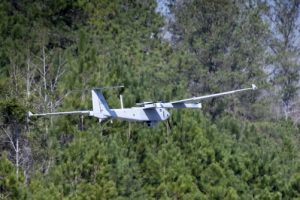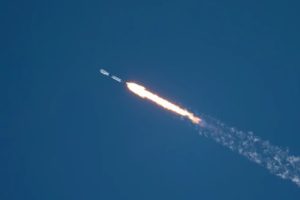 The STEM challenge is to submit ideas and suggestions for a safe and sustainable UK space sector, with students in years 12 and 13 from schools around the UK (and their equivalents in Scotland) working individually or in groups.
The STEM challenge is to submit ideas and suggestions for a safe and sustainable UK space sector, with students in years 12 and 13 from schools around the UK (and their equivalents in Scotland) working individually or in groups.
Each of five finalists will receive prizes, including an opportunity to participate in a Viasat sustainable space experience week. The top three will also be awarded education grants: £7,500 each for first place, £3,570 each for second place, and £1,875 each for third place.
During the final stage of the competition, students will be mentored by Viasat staff – from a range of specialisms – to help develop both their ideas and presentation skills. Then finalists will pitch to a panel of expert judges.
All entrants must complete a registration process and submit their responses to the first assignment in writing between Nov. 6, 2023 and Jan. 7, 2024 by 11:59 p.m. (GMT). A shortlist of 30 individual participants/teams will then compete in a digital round, before the final five pitch their ideas at Viasat’s headquarters in London in April 2024.
The satellite communications company describes space as “a global commons” that we all rely on, and the competition is about “engaging, training, and captivating the next generation of space champions”.
“This competition provides an incredible opportunity for students to get hands-on experience and mentorship from industry experts at Viasat,” said Sam Hyams, CEO of Springpod. “We are committed to making this an inclusive program that is accessible to all students regardless of background. By tapping into the creativity and passion of these young people, we hope to uncover innovative solutions that will drive a more sustainable and prosperous space industry in the UK and beyond. We encourage all eligible students to apply and look forward to seeing the exciting ideas they bring to the table.”
Viasat is working with education specialists Springpod to run the competition, with a particular focus on promoting entries from students from a variety of backgrounds.
The competition comes after Viasat’s expansion in the UK following its acquisition of Inmarsat in May 2023. The international headquarters of the combined company are set to open in London in 2024.
See also: Durham measures optical turbulence in atmosphere for FSO comms networks
 Electronics Weekly Electronics Design & Components Tech News
Electronics Weekly Electronics Design & Components Tech News



